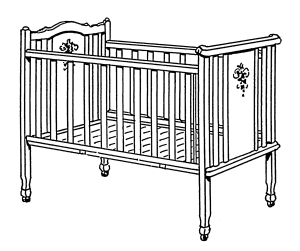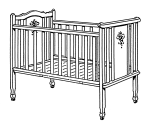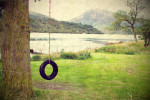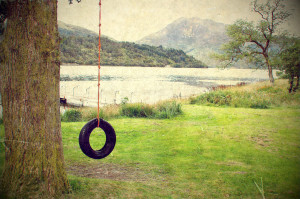strong>by Author Macal Gordon – ICPA.org: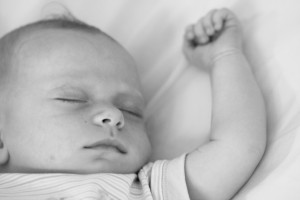
What Research Shows
When it comes to research about co-sleeping, there’s good news and there’s bad news. The good news is that there is research to suggest that there are benefits to parents and infants who share a bed (or room) through the night. The bad news is that, beyond the research into the connection between co-sleeping and SIDS prevention, there’s not much being done which inquires into its qualitative or long-term aspects. Until this type of research is done, we must continue to draw from the good work that is being done within the American culture, as well as from studies conducted in other cultures abroad.
Benefits for infants:
Co-sleeping promotes physiological regulation
The proximity of the parent may help the infant’s immature nervous system learn to self-regulate during sleep. (Farooqi, 1994; Mitchell, 1997; Mosko, 1996; Nelson, 1996; Skragg, 1996) It may also help prevent SIDS by preventing the infant from entering into sleep states that are too deep. In addition, the parents’ own breathing may help the infant to “remember” to breathe.(McKenna, 1990; Mosko, 1996; Richard, 1998).
Parents and infants sleep better
Because of the proximity of the mother, babies do not have to fully wake and cry to get a response. As a result, mothers can tend to the infant before either of them are fully awake. As a result, mothers were more likely to have positive evaluations of their nighttime experiences (McKenna, 1994) because they tended to sleep better and wake less fully (McKenna &Mosko, 1997).
Babies get more care giving
Co-sleeping increases breast feeding (Clements, 1997; McKenna, 1994; Richard et al., 1996). Even the conservative American Academy of Pediatrics (AAP) admits to the breast feeding advantages of co-sleeping (Hauck, 1998). Mothers who co-sleep breast feed an average of twice as long as non-co-sleeping mothers (McKenna). In addition to the benefits of breast feeding, the act of sucking increases oxygen flow, which is beneficial for both growth and immune functions.
Co-sleeping infants also get more attention and protective care. Mothers who co-sleep exhibited five times the number of “protective” behaviors (such as adjusting the infant’s blanket, stroking or cuddling) as solitary-sleeping mothers (McKenna &Mosko, 1997). These mothers also showed an increased sensitivity to the presence of the baby in the bed (McKenna).
Long-term Benefits
Higher self-esteem. Boys who co-slept with their parents between birth and five years of age had significantly higher self-esteem and experienced less guilt and anxiety. For women, co-sleeping during childhood was associated with less discomfort about physical contact and affection as adults (Lewis &Janda, 1988). Co-sleeping appears to promote confidence, self-esteem, and intimacy, possibly by reflecting an attitude of parental acceptance (Crawford, 1994).
More positive behavior.In a study of parents on military bases, co-sleeping children received higher evaluations from their teachers than did solitary sleeping children (Forbes et al., 1992). A recent study in England showed that among the children who “never” slept in their parents bed, there was a trend to be harder to control, less happy, exhibit a greater number of tantrums, and these children were actually more fearful than children who always slept in their parents’ bed, all night (Heron, 1994).
Increased life satisfaction. A large, cross-cultural study conducted on five different ethnic groups in large U.S. cities found that, across all groups, co-sleepers exhibited a general feeling of satisfaction with life (Mosenkis, 1998).
What Parents Suspect
Co-sleeping promotes sensitivity. Many parents who co-sleep feel that they become more attuned to their baby and child. They feel that their sensitivity to the needs and patterns of their baby translate into daytime sensitivity as well.
It reduces bedtime struggles
Parents of co-sleepers know that children who sleep in their parents’’ room have no reason to be afraid of bedtime. As they grow older and move into their own rooms, they have positive, secure images of sleep time. They have no reason to equate bedtime with being alone.
It fosters an environment of acceptance
Underlying the choice to co-sleep is a willingness to accept a child’s need for the parent both day and night. A parent essentially communicates that while the child is small and needful, the parent will be there to help the child and address their needs. Co-sleeping parents tend to believe that this willingness to respond to the child’s needs carries over into the daytime, and this powerfully contributes to the overall relationship with the child.
Co-sleeping is just as safe or safer than a crib
Existing studies do not prove that co-sleeping is inherently hazardous. The elements of the sleeping environment are what dictate the level of danger to the infant. When non-smoking parents who do not abuse alcohol or drugs sleep on a firm mattress devoid of fluffy bedding, co-sleeping is a safe environment. In addition, it is likely that there are many children whose lives have been saved by sleeping next to their parents. There is anecdotal evidence, for instance, of mothers who have noticed their child not breathing and were able to stimulate them to breathe.
Article originally posted at ICPA.org.
